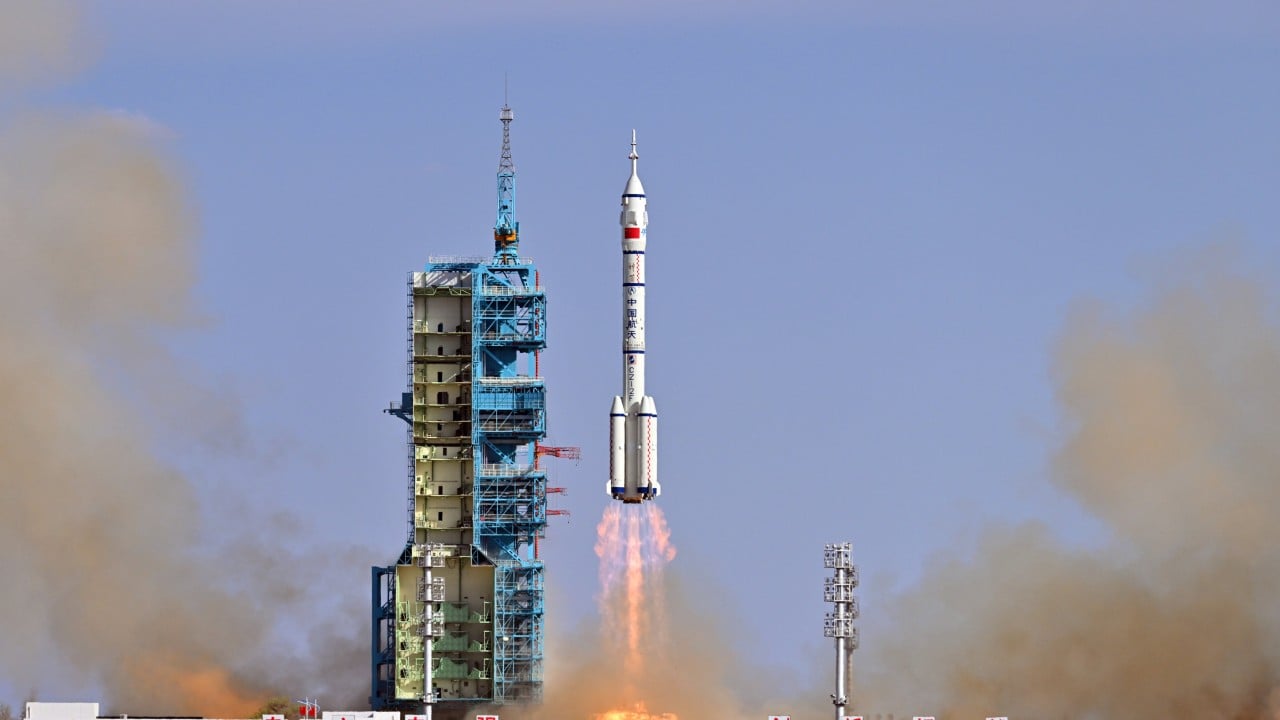Published: 5:22pm, 24 Apr 2025Updated: 5:55pm, 24 Apr 2025
China has launched a three-person crew to the Tiangong space station for the next six-month mission, which will see them carry out experiments on developing artificial brain models and the preparation of superconducting materials.
Advertisement
The Shenzhou-20 spacecraft lifted off atop a Long March 2F rocket from the Jiuquan Satellite Launch Centre in northwestern China at 5.17pm local time on Thursday, according to the China Manned Space Agency (CMSA).
The launch was confirmed successful by officials at 5.36pm after the spacecraft entered orbit.
The spacecraft was expected to perform an autonomous rendezvous and docking with Tiangong around 6½ hours after reaching low Earth orbit.
Mission commander Chen Dong, a former fighter pilot who is on his third mission to the space station, is joined by first-time astronauts Chen Zhongrui and Wang Jie, a former space flight engineer-turned astronaut.

During their mission, the crew will conduct science experiments that include preparing high-temperature superconducting materials in space, and regeneration in planarians – a type of flatworm capable of regenerating its organs – which could lead to insights on solving human health problems in space, such as injuries.

